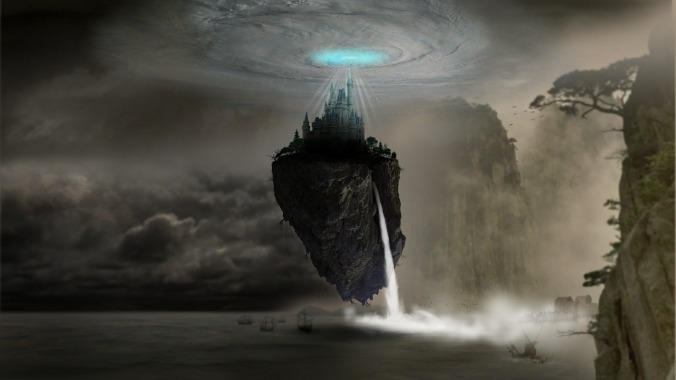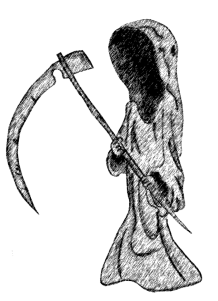
Literature | ˈlit(ə)rəCHər | noun | Written works, especially those considered of superior or lasting artistic merit. – New Oxford American Dictionary
According to a certain stuffy pocket of the literary community, science fiction, fantasy, and horror, collectively known as speculative fiction, don’t qualify as literature. Decent stories? Maybe. Cool ideas? Sure. But in the eyes of this snobbish literary elite, speculative fiction just doesn’t measure up to stuff like The Grapes of Wrath and Moby Dick.
Would you ever read Moby Dick willingly? Yeah, neither would I.
Take the 2003 National Book Awards as an example. That year’s winner was none other than Stephen King, who of course mainly writes horror. The literary elite wasted no time in attacking him, no doubt because he’s just a lowly genre writer. Here’s a quite from critic Harold Bloom.
“The decision to give the National Book Foundation’s annual award for ‘distinguished contribution’ to Stephen King is extraordinary, another low in the shocking process of dumbing down our cultural life. I’ve described King in the past as a writer of penny dreadfuls, but perhaps even that is too kind. He shares nothing with Edgar Allan Poe. What he is is an immensely inadequate writer on a sentence-by-sentence, paragraph-by-paragraph, book-by-book basis.”
You forgot chapter-by-chapter, Harry, but whatever. I disagree with you.
In an episode of my favorite podcast, The Geek’s Guide to the Galaxy, host David Barr Kirtley led a panel on this very debate. Recorded to promote Best American Science Fiction and Fantasy 2015, edited by John Joseph Adams and Joe Hill, the panel featured such influential SF figures as Adams, Hill, Carmen Maria Machado, Seanan McGuire, and Jess Row.
It’s interesting; Adams and Hill have starkly different opinions on the purpose of the volume. On the one hand, John Joseph Adams thinks of Best American Science Fiction and Fantasy as a vehicle for speculative fiction to prove its worth to the literary mainstream. In his own words:
“I and other science fiction fans believe that the best science fiction and fantasy is on par with or better than any other genre. My goal with The Best American Science Fiction and Fantasy was to prove that.”
Joe Hill, however, argues that speculative fiction has already merged with literature, and that it did so a long time ago.
“The instruments of science fiction and fantasy—the tools in that genre toolbox—have been out there in the literary world and being explored for at least a decade now, in work by people like Jonathan Lethem, Michael Chabon, Margaret Atwood, and Cormac McCarthy. Science fiction and fantasy is part of the literary mainstream, and has been for a while now.”
At first glance, Hill’s argument resonated more with me. There are so many novels out there—The Road, Fahrenheit 451, Cloud Atlas, and 1984, just to name a few—that are generally considered literary, non-genre works, yet are so clearly speculative fiction that it’s difficult to argue otherwise.
The more I’ve thought about this debate, the more I’ve started to like a decidedly different answer.
Why doesn’t the literary mainstream accept speculative fiction?
Why does it matter?
Let’s refer back to our definition of literature for a second. In the grand scheme of things, does The Lord of the Rings have “superior or lasting merit”? I’d say so. Since the trilogy’s publication in 1954, it’s been an enduring classic for generation upon generation. It’s been translated into 38 different languages (not sure if Tengwar counts there). Furthermore, it’s a story about enduring human ideas: friendship, tyranny, power, greed, love.
Does The Hitchhiker’s Guide to the Galaxy have lasting merit? Does Dracula? Does Slaughterhouse Five?
If you’ve ever read any of those books, you already know the answer.
Truth is, we don’t need to speak up for speculative fiction. Speculative fiction speaks for itself.
Are you a fan of speculative fiction? Me too. Check out some of my speculative work here.




 I just saw The Hobbit a couple of nights ago, and my first thought upon leaving the theatre was…what was wrong with that?
I just saw The Hobbit a couple of nights ago, and my first thought upon leaving the theatre was…what was wrong with that?